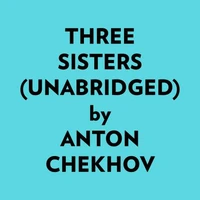A Living Chattel. A Tale of Power and Oppression: A Young Girl's Struggle for Autonomy in 19th - Century Russia
Par : ,Formats :
Disponible dans votre compte client Decitre ou Furet du Nord dès validation de votre commande. Le format ePub est :
- Compatible avec une lecture sur My Vivlio (smartphone, tablette, ordinateur)
- Compatible avec une lecture sur liseuses Vivlio
- Pour les liseuses autres que Vivlio, vous devez utiliser le logiciel Adobe Digital Edition. Non compatible avec la lecture sur les liseuses Kindle, Remarkable et Sony
 , qui est-ce ?
, qui est-ce ?Notre partenaire de plateforme de lecture numérique où vous retrouverez l'ensemble de vos ebooks gratuitement
Pour en savoir plus sur nos ebooks, consultez notre aide en ligne ici
- Nombre de pages33
- FormatePub
- ISBN406-4-06-631705-8
- EAN4064066317058
- Date de parution10/04/2021
- Protection num.Digital Watermarking
- Taille458 Ko
- Infos supplémentairesepub
- ÉditeurGOOD PRESS
Résumé
Anton Chekhov's A Living Chattel is a compelling short story that delves into the complex dynamics of class and gender in 19th-century Russia. The narrative follows the life of a young girl named Natasha, who is sold into marriage to an older man by her own father. Chekhov's writing style is marked by its subtle yet powerful character development and vivid imagery, drawing readers into the harsh realities of social norms and oppression.
The story's themes of power, control, and individual agency are timeless and thought-provoking, making it a significant work in Russian literature. Chekhov's ability to capture the essence of human emotions and societal issues sets him apart as a master storyteller of his time. A Living Chattel not only reflects the societal constraints of the era but also raises important questions about personal autonomy and resistance against oppressive systems.
This book is highly recommended for readers interested in thought-provoking literature that explores the complexities of human relationships and societal structures.
The story's themes of power, control, and individual agency are timeless and thought-provoking, making it a significant work in Russian literature. Chekhov's ability to capture the essence of human emotions and societal issues sets him apart as a master storyteller of his time. A Living Chattel not only reflects the societal constraints of the era but also raises important questions about personal autonomy and resistance against oppressive systems.
This book is highly recommended for readers interested in thought-provoking literature that explores the complexities of human relationships and societal structures.
Anton Chekhov's A Living Chattel is a compelling short story that delves into the complex dynamics of class and gender in 19th-century Russia. The narrative follows the life of a young girl named Natasha, who is sold into marriage to an older man by her own father. Chekhov's writing style is marked by its subtle yet powerful character development and vivid imagery, drawing readers into the harsh realities of social norms and oppression.
The story's themes of power, control, and individual agency are timeless and thought-provoking, making it a significant work in Russian literature. Chekhov's ability to capture the essence of human emotions and societal issues sets him apart as a master storyteller of his time. A Living Chattel not only reflects the societal constraints of the era but also raises important questions about personal autonomy and resistance against oppressive systems.
This book is highly recommended for readers interested in thought-provoking literature that explores the complexities of human relationships and societal structures.
The story's themes of power, control, and individual agency are timeless and thought-provoking, making it a significant work in Russian literature. Chekhov's ability to capture the essence of human emotions and societal issues sets him apart as a master storyteller of his time. A Living Chattel not only reflects the societal constraints of the era but also raises important questions about personal autonomy and resistance against oppressive systems.
This book is highly recommended for readers interested in thought-provoking literature that explores the complexities of human relationships and societal structures.



